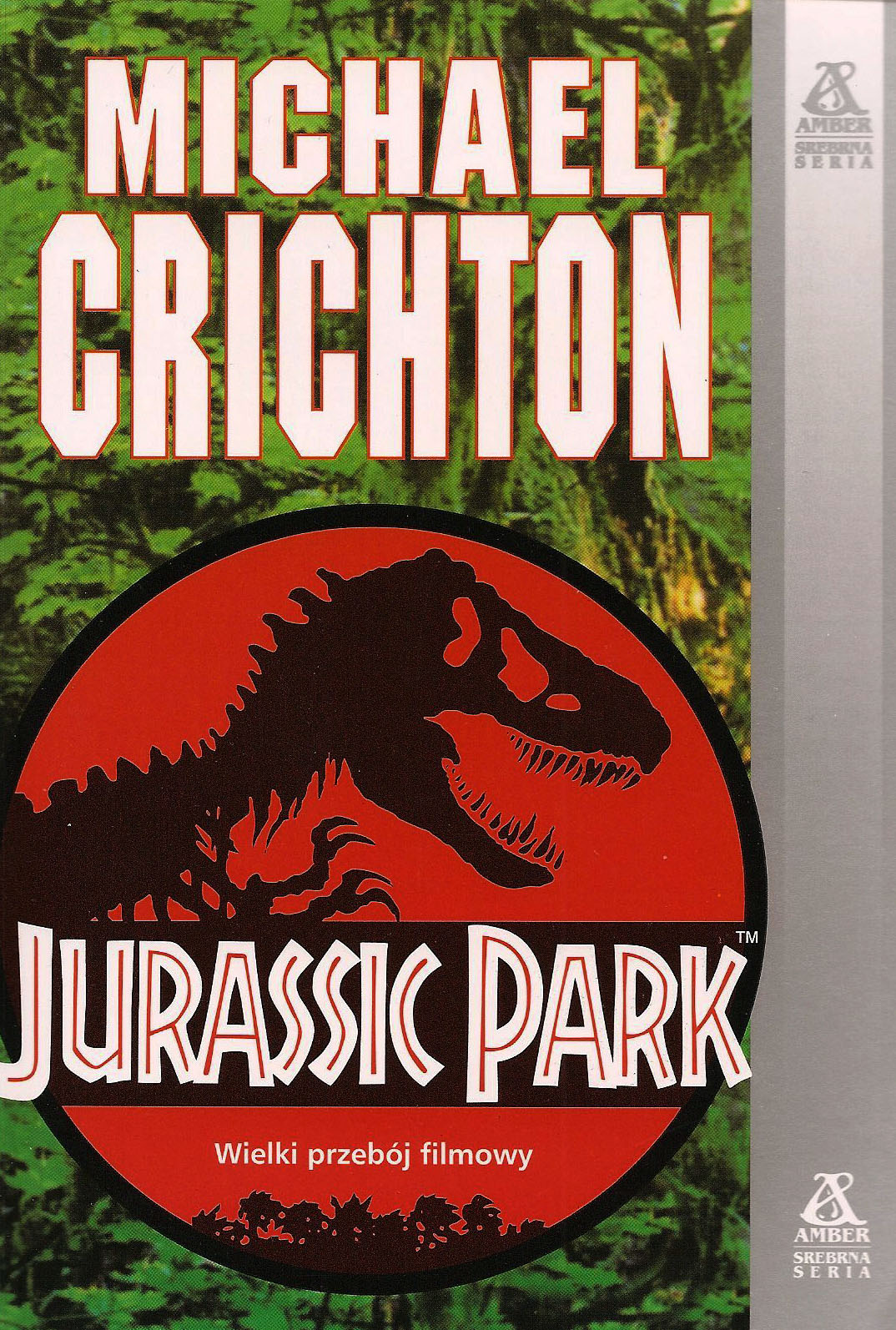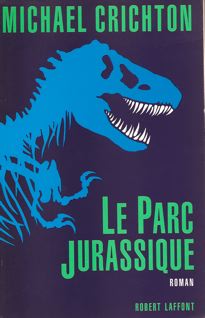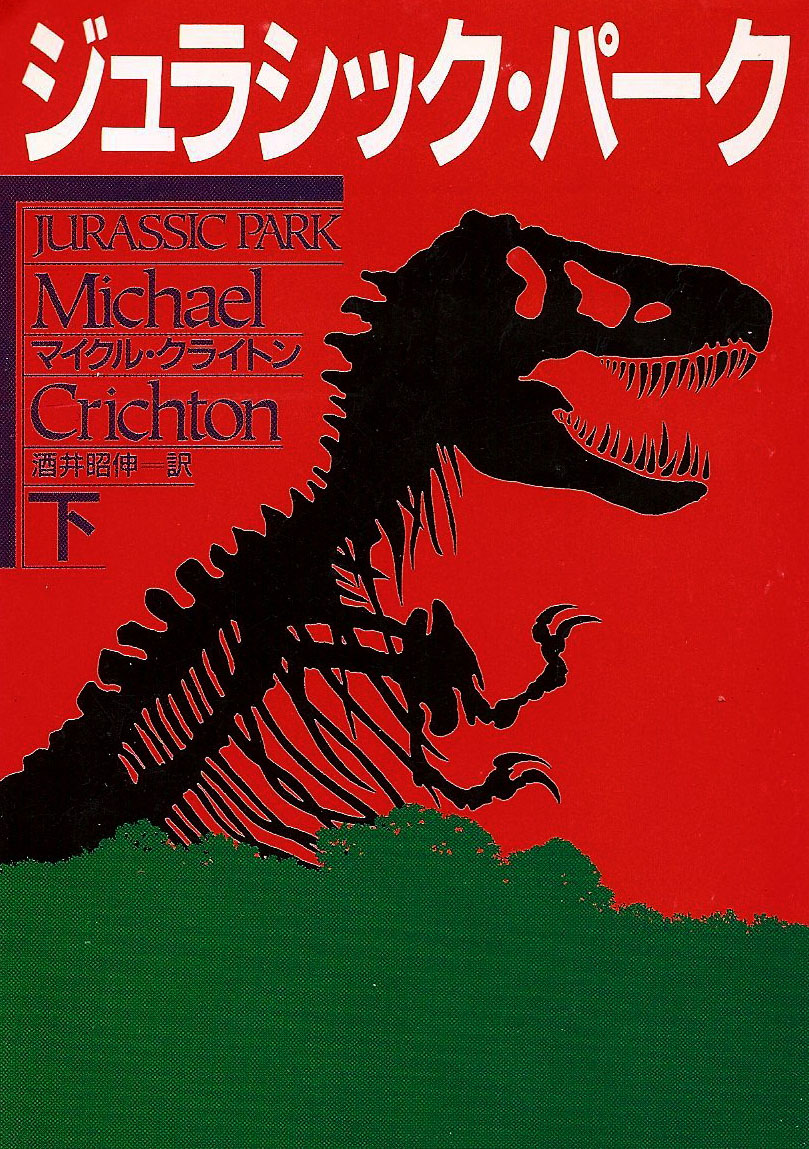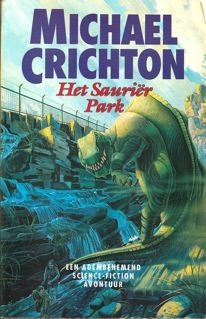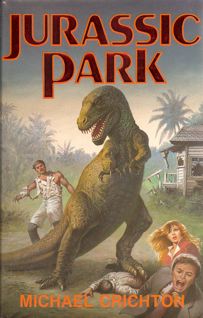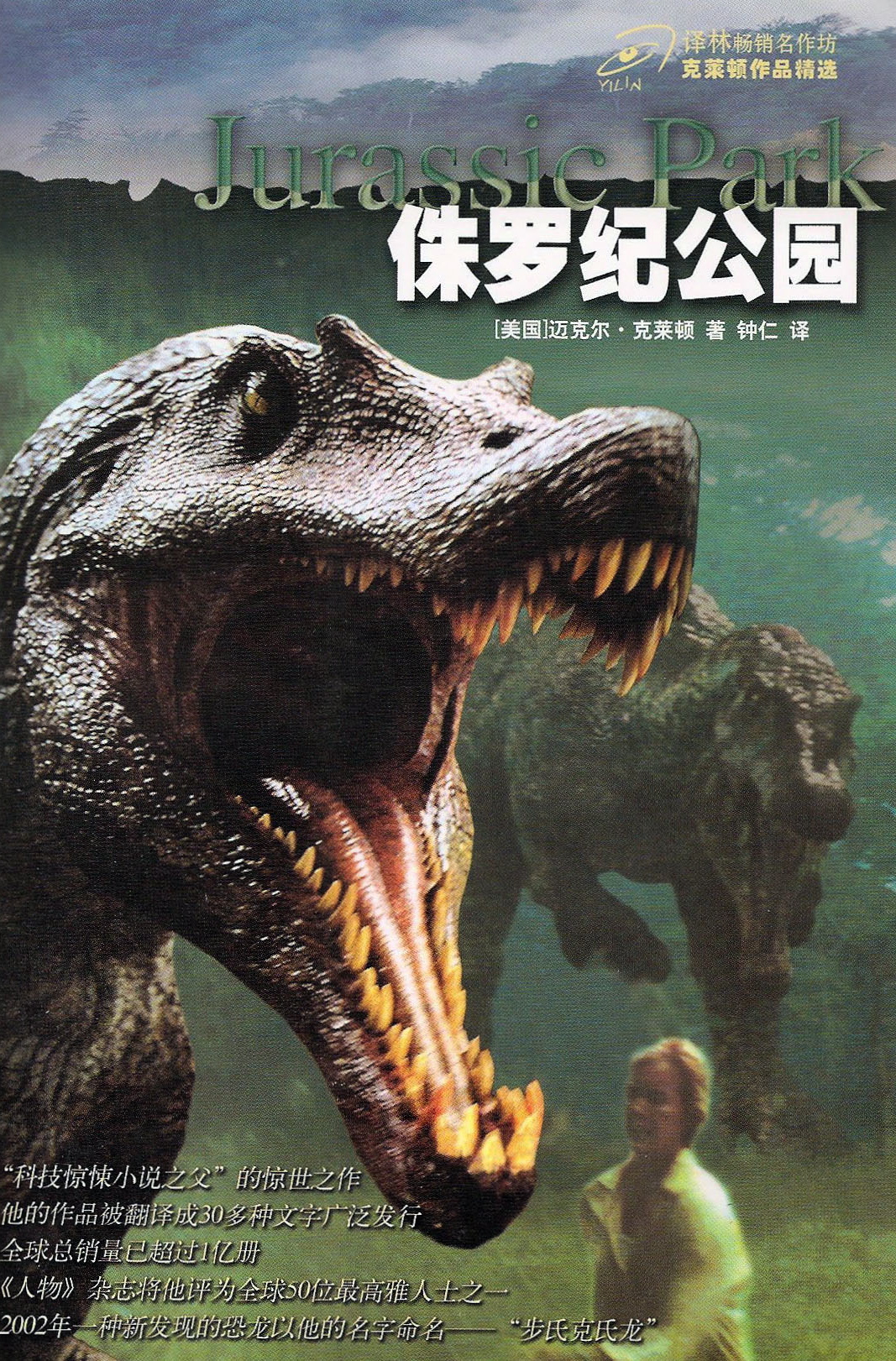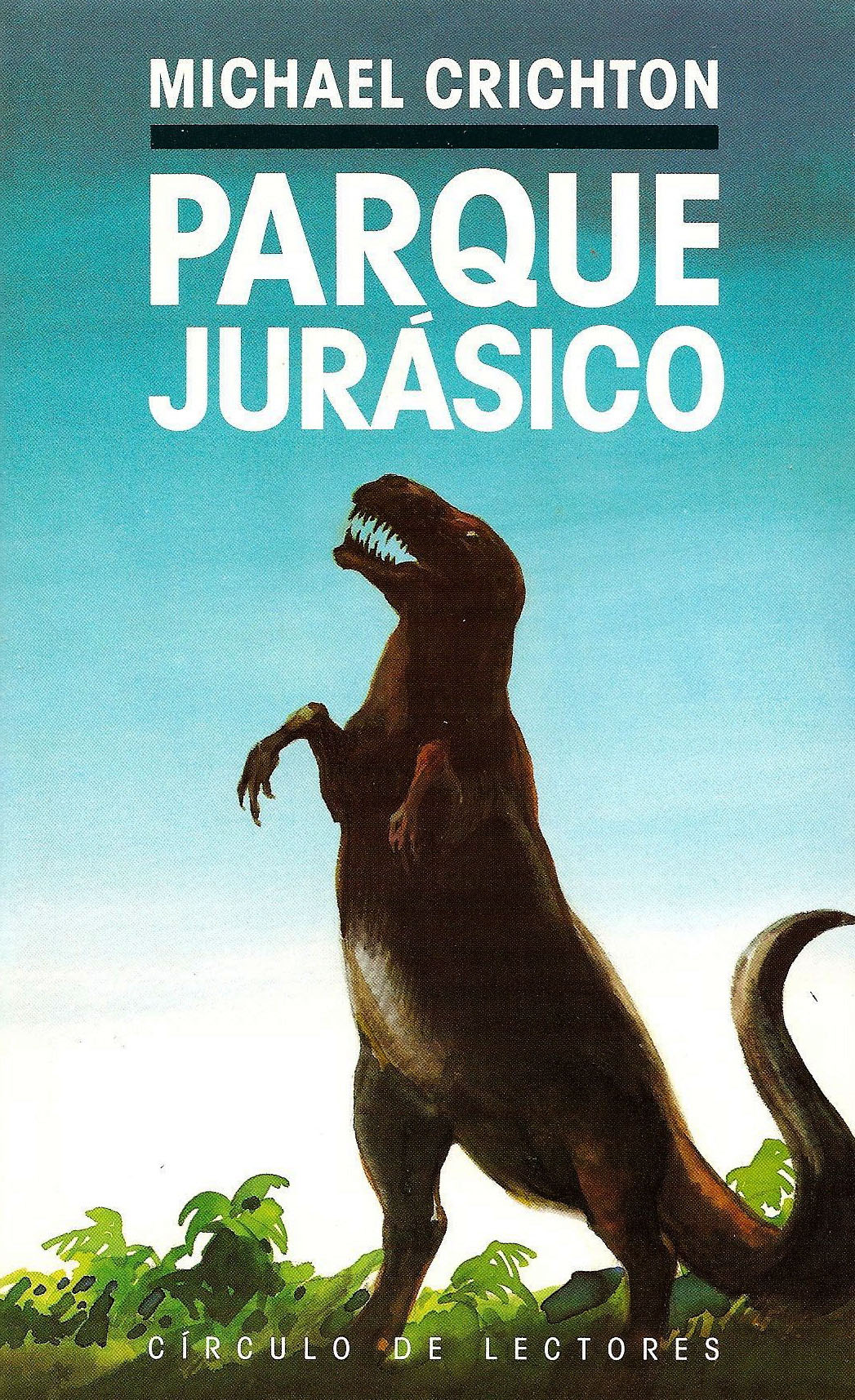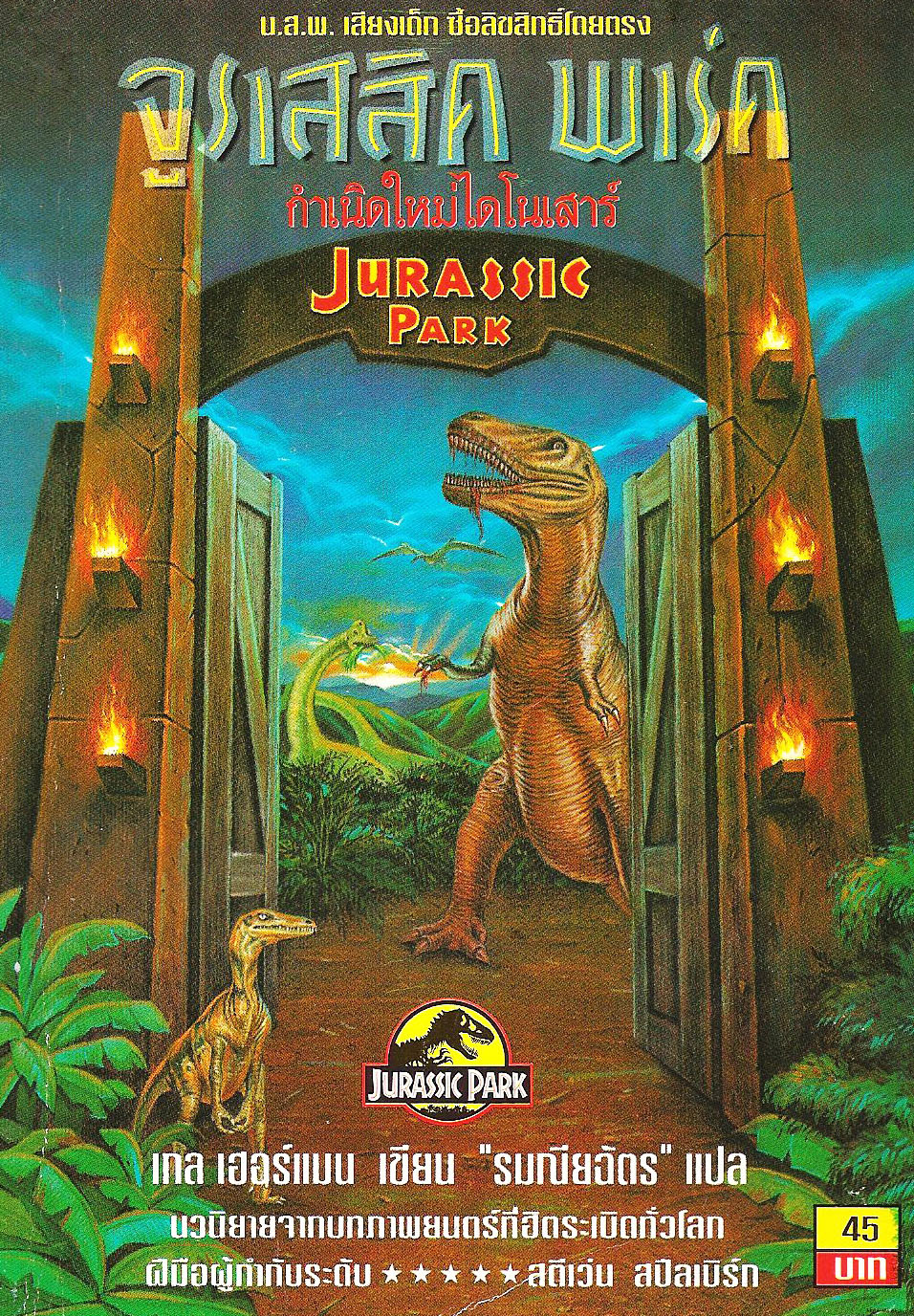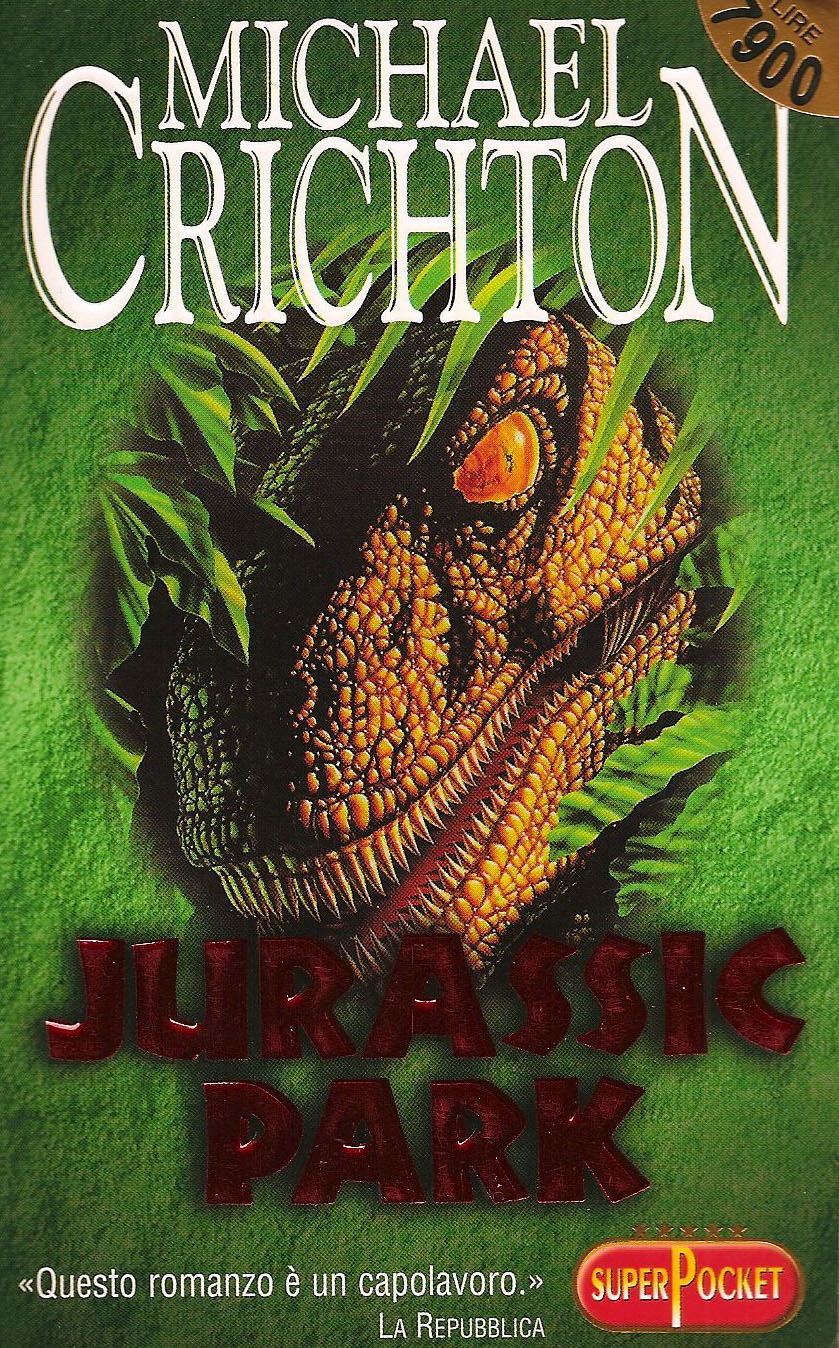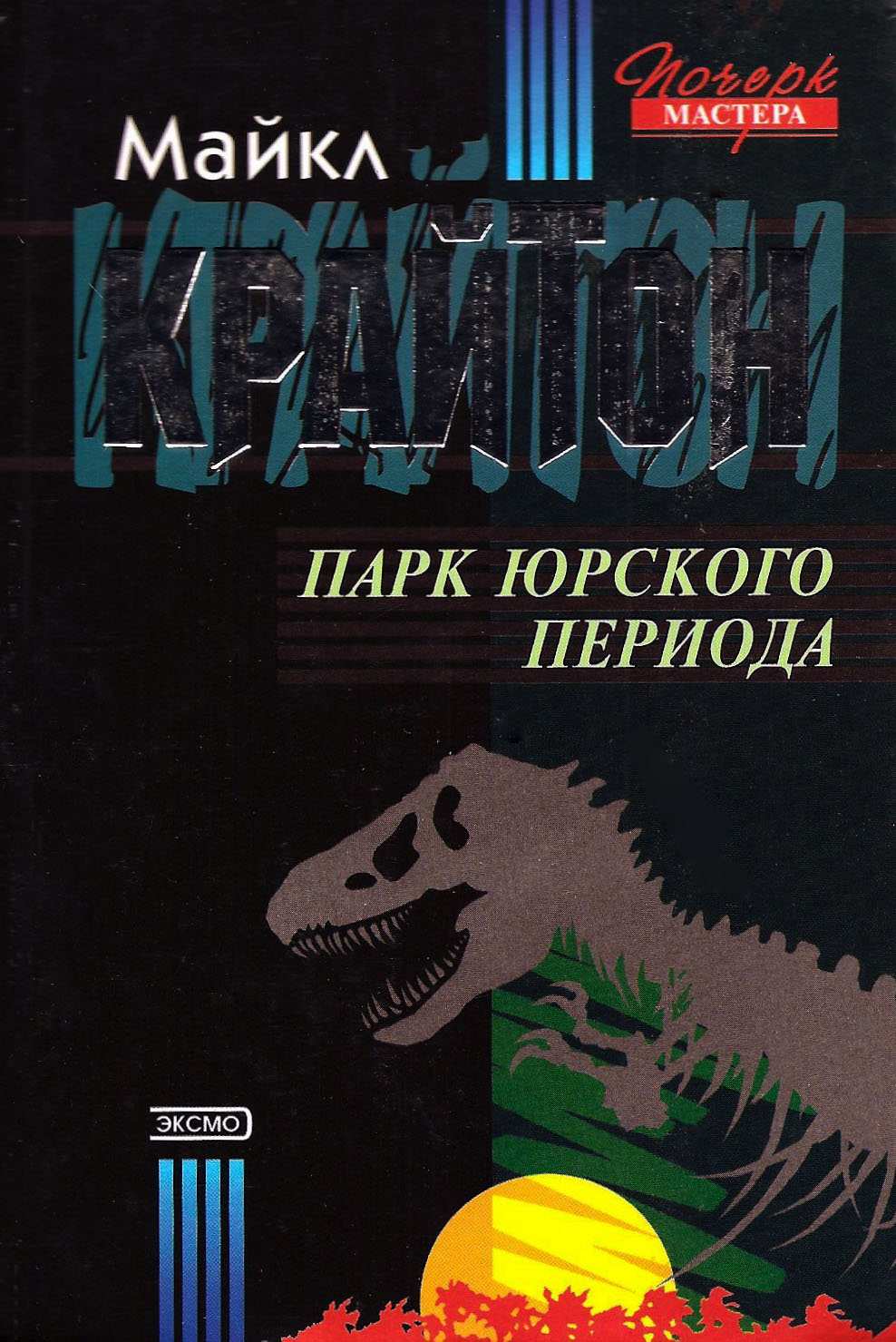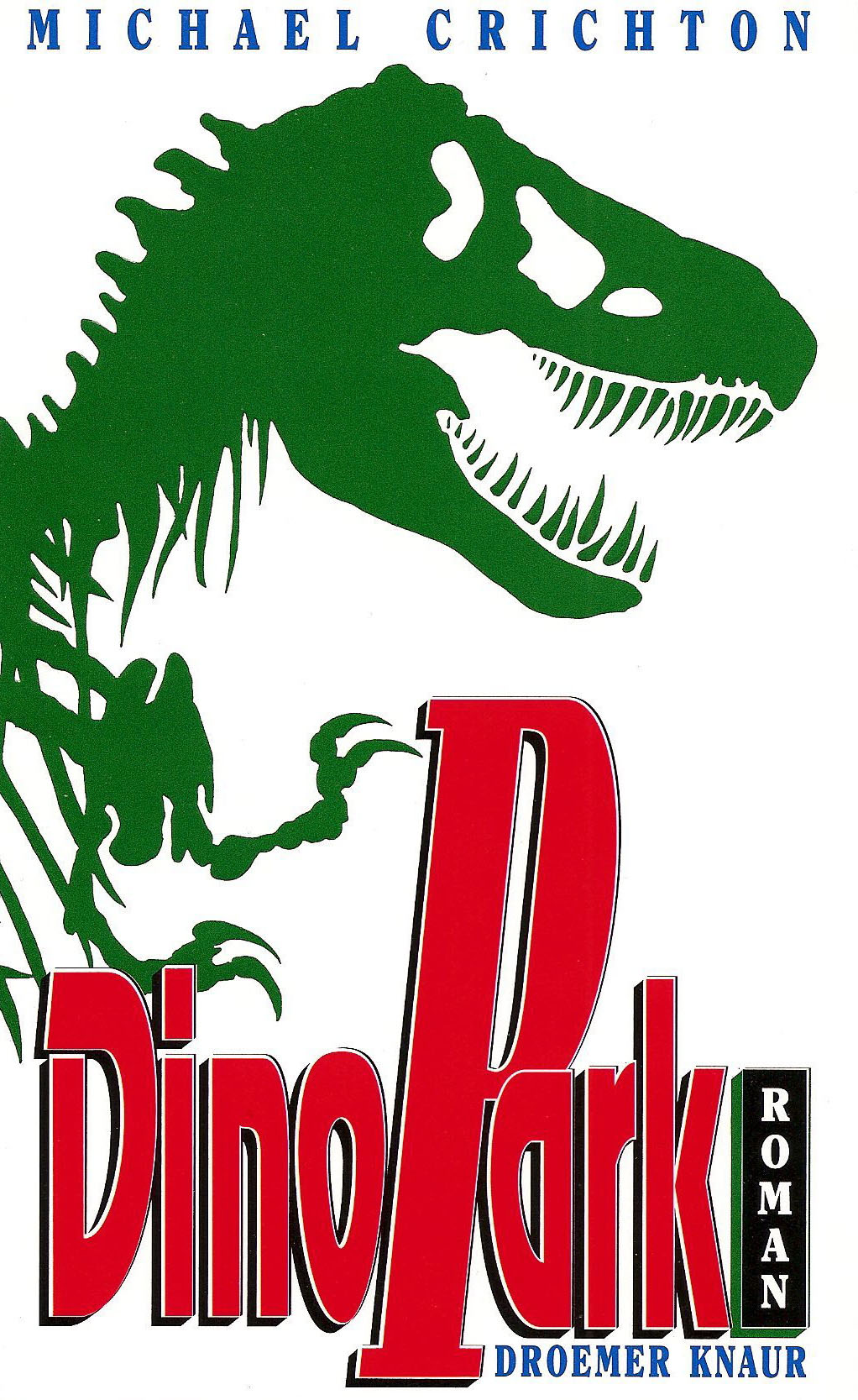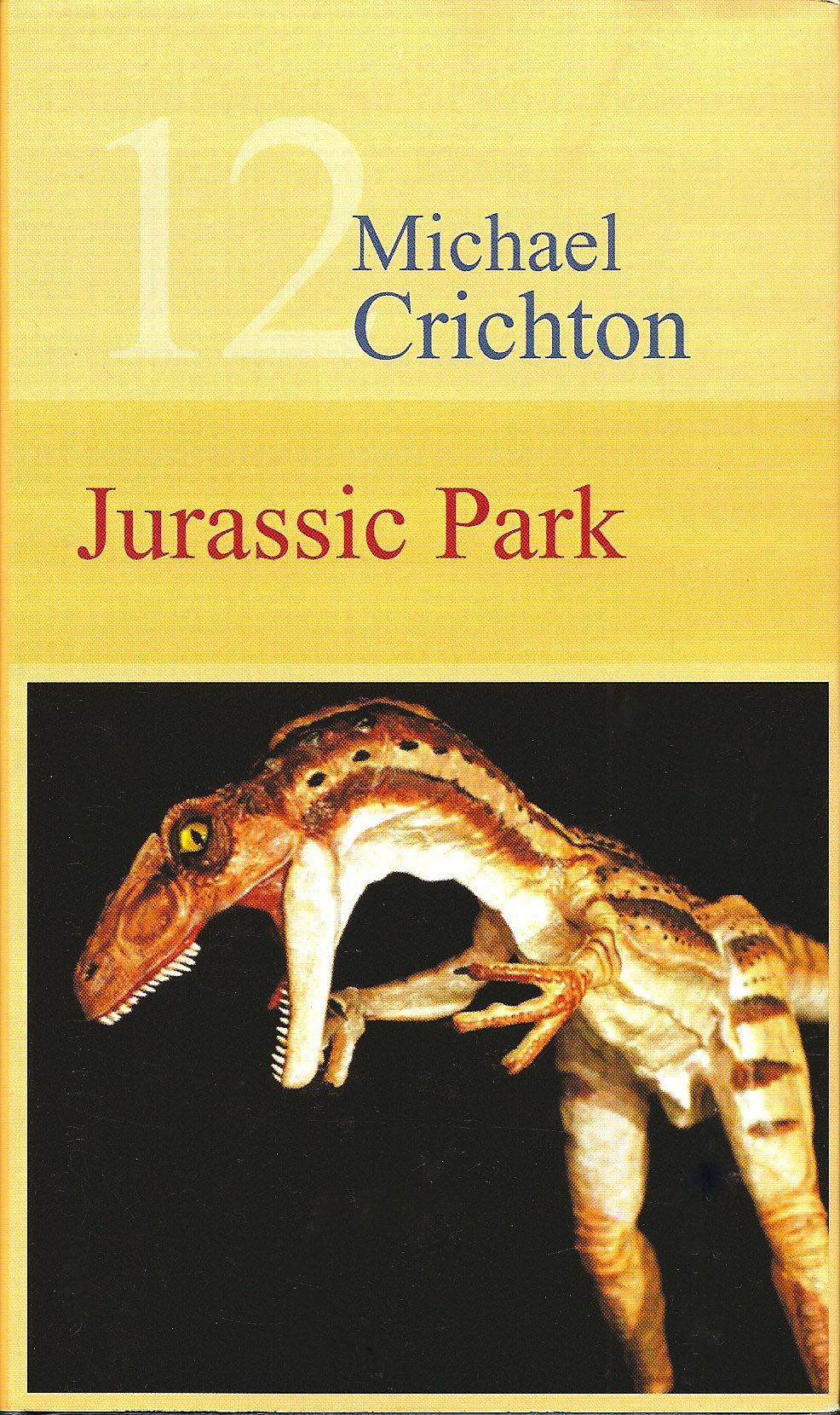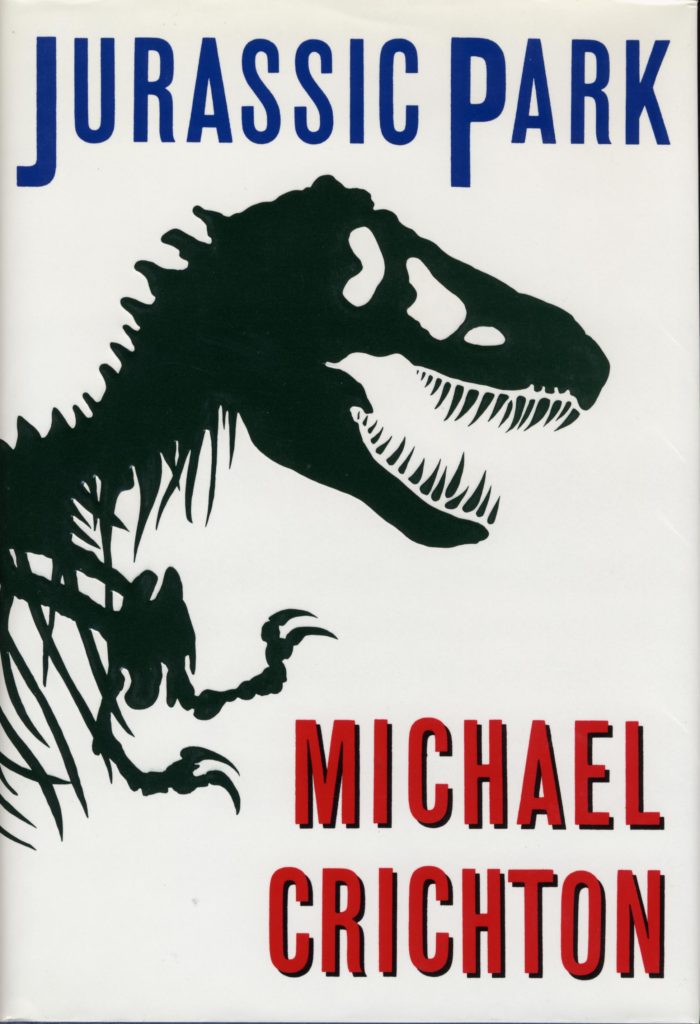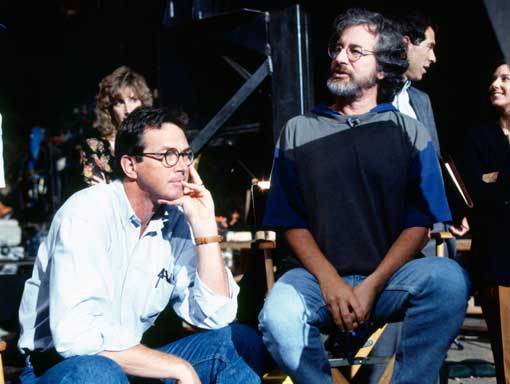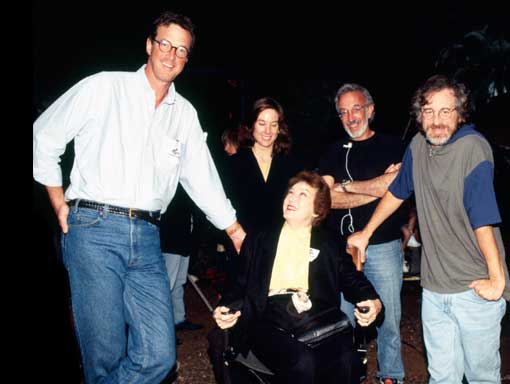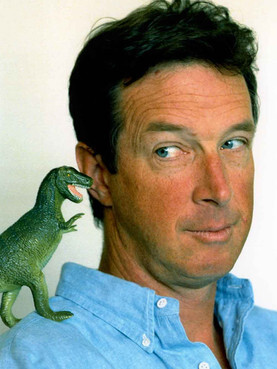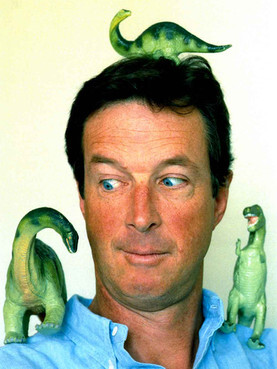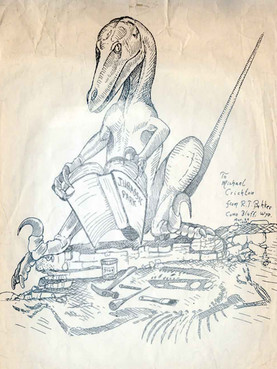Jurassic Park
In His Own Words
I wrote a screenplay about cloning a pterodactyl from fossil DNA in 1983, but the story wasn’t convincing. I worked on it for several years since, trying to make it more credible. Finally I decided on a theme park setting, and wrote a novel from the point of view of a young boy who was present when the dinosaurs escaped. I then sent the book to the usual people who read my first drafts.
Over the years, I’ve come to rely on five or six people who read my drafts; generally they have a range of responses. Not this time. They were all in agreement: they hated Jurassic Park.
I got angry reactions such as, “Why would you write a book like this?” But when I asked them to explain exactly why they hated it, they couldn’t put their finger on anything in particular. They just hated it, that’s all. Hated every bit of it.
I wrote another draft. They hated that one, too. Just as strongly as the one before. Whatever I had done in the latest draft, it hadn’t helped.
I wrote another draft, but the result remained the same.
Finally one of the readers said that they were irritated with the story because they wanted it to be from an adult point of view, not a kid point of view. They said, “I want this to be a story for me.” Meaning for an adult.
So I rewrote it as an adult story.
And then everybody liked it.


Synopsis
An astonishing technique for recovering and cloning dinosaur DNA has been discovered. Creatures once extinct now roam Jurassic Park, soon-to-be opened as a theme park. Until something goes wrong…and science proves a dangerous toy….
Passage 1
Broadly speaking, the ability of the park to control the spread of life-forms. Because the history of evolution is that life escapes all barriers. Life breaks free. Life expands to new territories. Painfully, perhaps even dangerously. But life finds a way.” Malcolm shook his head. “I don’t mean to be philosophical, but there it is.”
Passage 2
To the south, rising above the palm trees, Grant saw a single trunk with no leaves at all, just a big curving stump. Then the stump moved and twisted around to face the new arrivals. Grant realized that he was not seing a tree at all.
He was looking at the graceful, curving neck of an enormous creature, rising fifty feet into the air.
He was looking at a dinosaur.
Passage 3
“And Hammond’s project,” Malcolm said, “is another apparently simple system – animals within a zoo environment – that will eventually show unpredictable behavior.”
You know this because of …”
Theory,” Malcolm said.
But hadn’t you better see the island to see what he’s actually done?”
“No. That is quite unncessary. The details don’t matter. Theory tells me that the island will quickly proceed to behave in unpredictable fashion.”
And you’re confident of your theory.”
“Oh, yes,” Malcolm said. “Totally confident.” He sat back in the chair. “There is a problem with that island. It is an accident waiting to happen.”
From the Archives
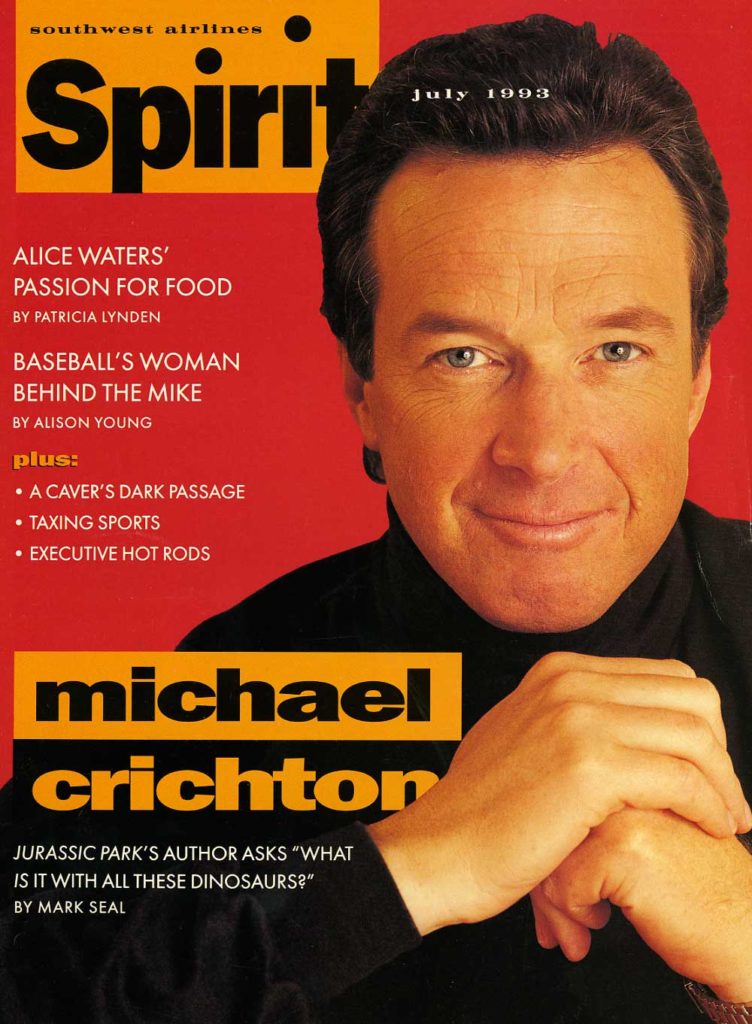

Michael Crichton was profiled in a September 1993 issue of Southwest Airlines Spirit magazine by Mark Seal. In this excerpt, he relates a story about whether or not dinosaurs could really be cloned:
“Crichton likes to tell the story of running into a group of biotechnologist friends in Hawaii after Jurassic Park was published by Knopf in early 1990. Eager for feedback, he showed them the book.
“I had some concern that they might dislike it because it was critical of biotechnology, he says. “My ideas in that book was to suggest that we shouldn’t make dinosaurs. And theirs was, ‘Why not?’ And the first person, a very famous biotechnologist, read it and put the book down and said, ‘It can be done!’ and got excited. There’s actually been a fair amount of research that’s been promoted or stimulated by the book.”
Can it be done?
“Not now,” Crichton says. “I think {the biotechnologist} was saying that the story has not theoretical barriers, you know. It doesn’t require you to travel faster than light. … I would be very surprised if we didn’t have the revival of some extinct animals, possibly within a decade.”
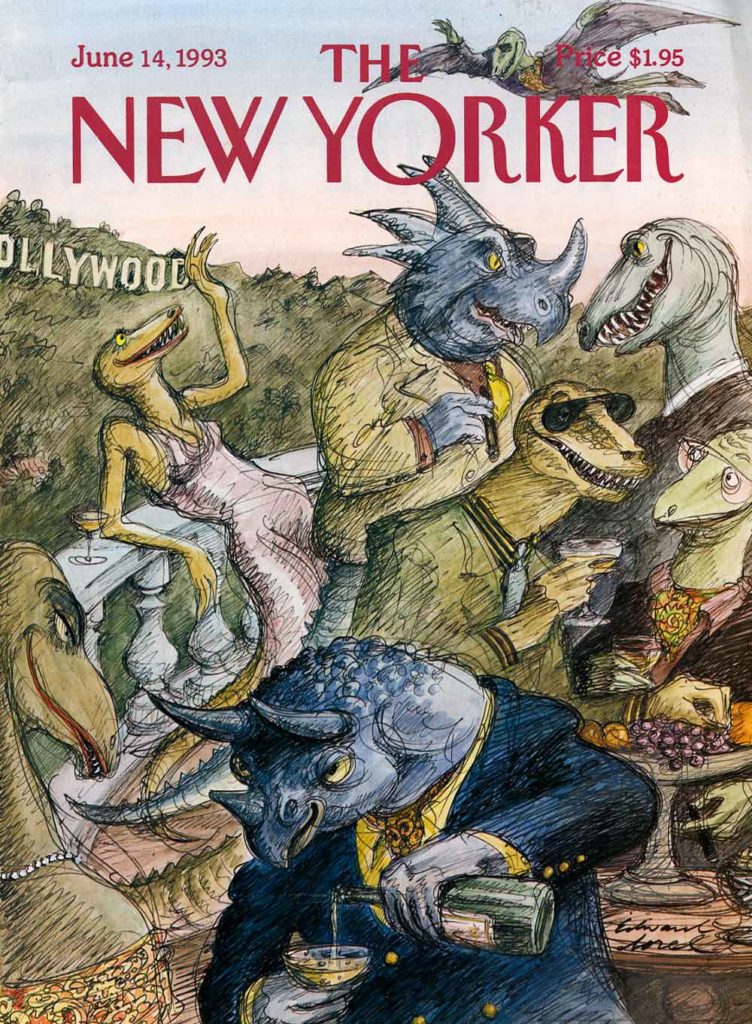

In His Own Words
I first started writing the book in 1981, and I put the project aside because at that time, there seemed to be an enormous mania about dinosaurs in America, and I did not want to book to appear to ride a current fashion. But the fashion never went away. Finally I realized that the fascination with dinosaurs was permanent. It is always there.
I suspect children have always been fascinated by dinosaurs. To go to a museum and see a young child, barely able to walk and talk, shrieking “stegosaurus” and “tyrannosaurus” as they see the creatures, is a very striking thing. Why does it happen? What is going on in that child’s mind, shouting out those complex Latin names? I have thought about it a great deal and I conclude I have no idea why it occurs. But dinosaurs seem to excite the imagination of both adults and children everywhere in the world.
During the last few years, I have entertained many theories about why this is so. For a while I thought it might be a particular fascination in countries where skeletons have been found—a kind of nationalistic interest. But dinosaurs are popular everywhere. For example, they are a source of great fascination in Japan, although no remains have been found there.
For a while, I thought it was primarily a childish interest. But in museums, you notice that adults are equally fascinated. (I often think the children are only an excuse for adults to go visit the dinosaurs.)
For a while, I thought it was an interest that children passed on to each other, in a proof of juvenile subculture. But my own daughter showed a marked interest in dinosaurs before she ever went to pre-school, before she was even very verbal.
For a while, I thought it was a function of the great size of these creatures. But the smaller dinosaurs excite just as much interest. Baby dinosaurs are very appealing. And in any case, the dinosaur toys are all small…
For a while, I thought the interest was something to do with the fact that the dinosaurs had become extinct. But children are not clear about this. When my daughter was two years old, she asked to see the dinosaurs at the zoo. (She had been to the zoo several times, and apparently thought the dinosaurs were caged in some section we hadn’t visited yet. She greeted the news that she could not see dinosaurs at the zoo with a resigned shrug—parents never do what you want them to do!)
So in the end, I decided I just don’t understand it. And I don’t believe anybody does. In the end, it is a mystery.
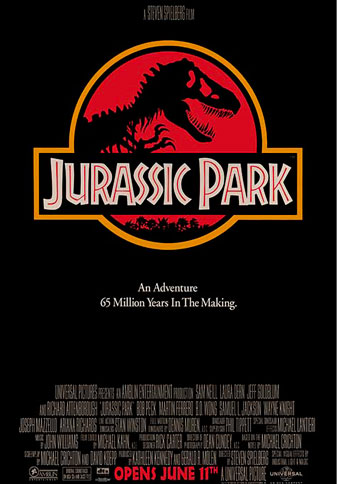

Jurassic Park (Movie)
| Release Date: | June 11, 1993 |
| Running Time: | 2 HRS 7 MIN |
| MPAA: | PG13 |
| Director: | Steven Spielberg |
| Screenwriter: | Michael Crichton, David Koepp |
| Based on the Novel By: | Michael Crichton |
| Studio: | Universal Pictures |
| Starring: | Sam Niell, Laura Dern, Jeff Goldblum, Richard Attenborough, Samuel L. Jackson, Wayne Knight, B.D. Wong, Martin Ferrero, Ariana Richards, Joseph Mazello, Bob Peck |
It’s just a delightful dinosaur story. At one point [Spielberg] said to me, ‘You know, when people go to this movie, they just want to have a good time and they want to believe the dinosaurs are real.’ And I thought, ‘That’s right. That’s the deal.’
Book Covers
